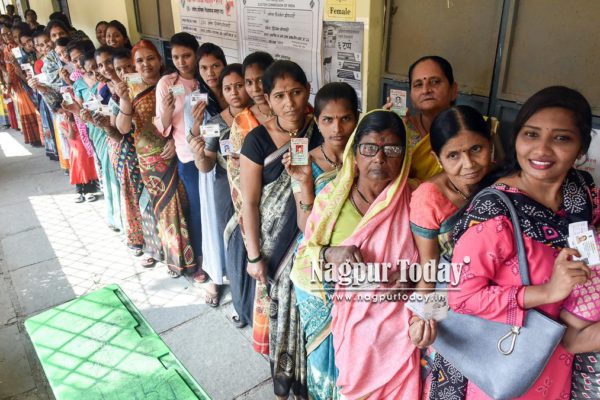
According to the Election Department’s latest summary covering all 38 prabhags, Nagpur now has 24.82 lakh registered voters, including 12.56 lakh women, 12.26 lakh men, and 256 voters under the ‘other’ category.
This marks one of the most significant electoral trends in recent years. Women now form the largest and most influential voting bloc, signalling a broader rise in female political participation in urban Nagpur.
The data shows that in most prabhags, women voters have either matched or surpassed men. Large wards such as Prabhag-8 (39,831 women vs 39,108 men) and Prabhag-36 (38,592 women vs 37,403 men) highlight this shift clearly. Even areas traditionally dominated by male voter turnout show a narrowing gender gap.
Prabhag-29 remains Nagpur’s biggest with 82,027 voters, recording an almost perfectly balanced electorate, 41,014 men and 41,012 women.
Prabhag-8 and Prabhag-36, with 78,947 and 75,998 voters respectively, continue the trend of strong female representation. Even the smallest, Prabhag-38 with 46,537 voters, shows a close gender distribution.
The rise of women voters is widespread, not confined to dense wards. Mid-level prabhags including 11, 12, 20, 22, and 33 also report more women than men.
Election officials attribute the changing demographics to:
• Better and more inclusive voter enrollment drives
• Higher literacy levels among women
• Improved mobility within the city
• Growing awareness of civic rights and responsibilities
The ‘other’ category, while still small, stands at 256 voters, with Prabhag-1 recording the highest at 45.
Political impact: Women will shape the civic polls
With women holding a numerical edge, political parties are expected to recalibrate everything—from candidate selection to manifesto priorities. Issues such as sanitation, safe public transport, health services, reliable roads, and women-focused welfare schemes are likely to dominate campaign narratives.
NMC’s updated voter summary not only illustrates Nagpur’s changing population dynamics but underscores a larger message: women are set to play a decisive role in determining who governs the city next.














